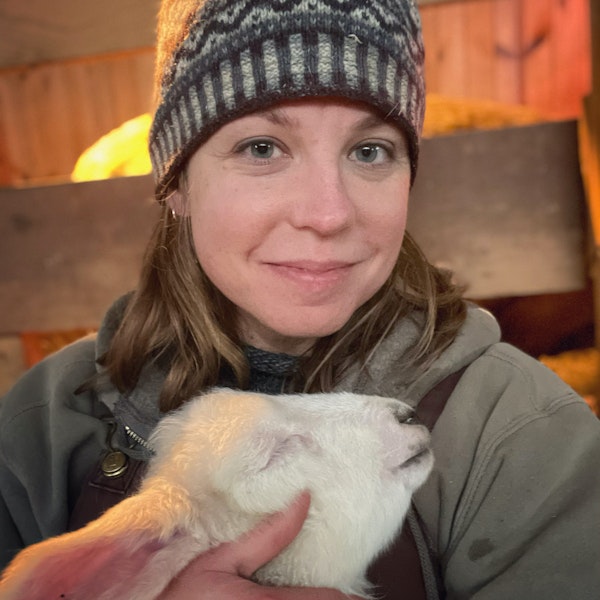
Kate Larson, editor of Farm & Fiber Knits, was the editor of Spin Off from from 2018–2025. She's excited to continue serving Spin Off as content editor. Kate teaches handspinning around the country and spends as many hours as life allows in the barn with her beloved flock of Border Leicesters.
Even with just a few quick passes through the marketplace, I came home buzzing with ideas and an armload of inspiring spinning fiber.
There are many ways to begin a new knitting with handspun project and work through the process of designing yarn, estimating fiber needed, choosing pattern and gauge, and staying consistent. I’ll share my approach with you step-by-step in a post series.
I’ve just resurfaced from Eugene Textile Center’s Fiber in the Forest retreat. This annual retreat welcomes fiber artists to delve deeper into their craft for three full days.
Spinning at the wheel has always been invigorating, freeing my creativity and bringing some of my best ideas to the surface. Charkha spinning is like a deep breath, making me more aware of the space I inhabit.
It’s no secret that handspinners love to savor every last morsel of fiber. Here’s Kate’s solution for what to do with the leftover dregs in your stash: spin a gradient yarn.
Amy Tyler’s new article on energized yarn in the Spring issue of Spin Off has people buzzing about these special yarns, so let’s look back at Kathryn’s classic video.
In the spirit of spring, we have sorted our leftovers into colorways, carded them into batts, and now we dive right into spinning gradient yarn for a knitted cowl!
The first post in our series on gradient batts began with a tangled multicolored mess and finished with a cohesive colorway. Now, let’s assemble a gradient batt!
I have been aware of inkle weaving since the beginning of my fiber life and long admired the long strips of useful cloth.
What do you do with fiber dregs? Since my early spinning days, I’ve been saving these bits and pieces for drumcarding into batts.